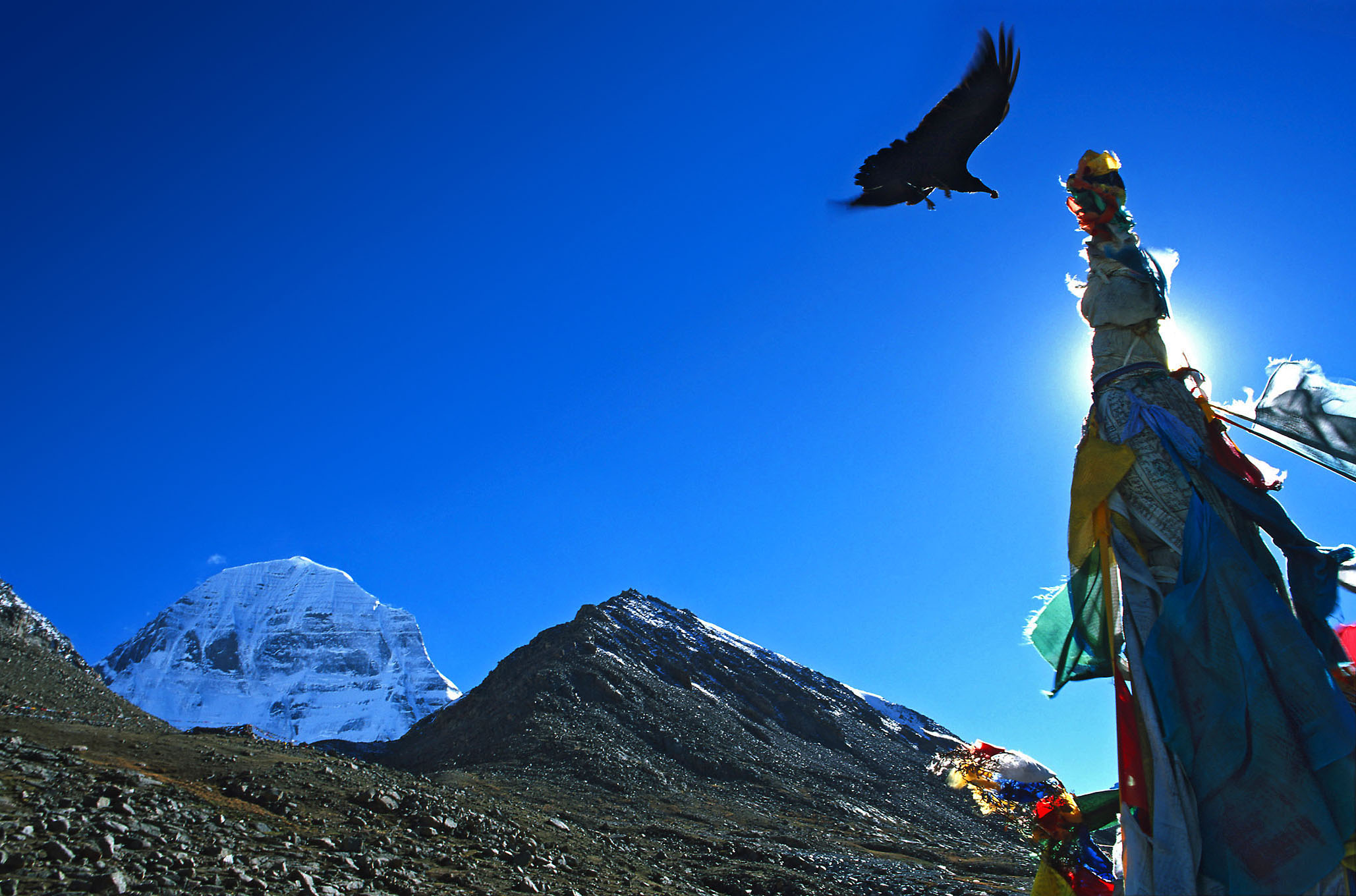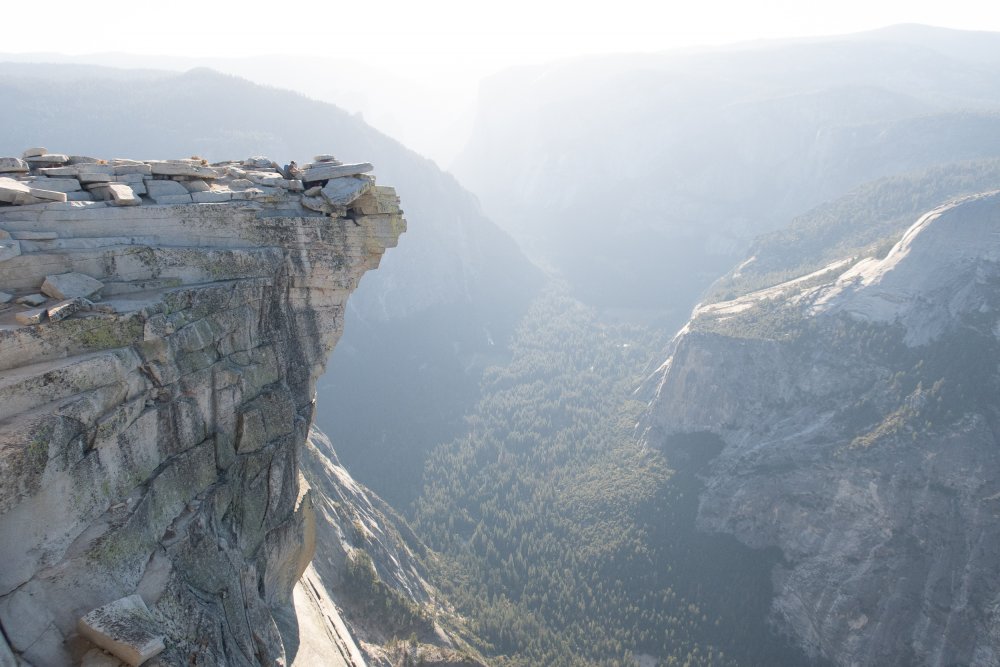-
Content count
515 -
Joined
-
Last visited
-
Days Won
2
Posts posted by Rishi Das
-
-
4 hours ago, rideforever said:One must simply cut the whole thing away, give up fixing things, and poor light into you...

nam nam nam nam nam...

-
 1
1
-
-
17 hours ago, Zen Pig said:When I get folks who tell me that some guru or teacher either takes lucid dreaming to serious, or just not serious at all. I have to think that they have not had real dreams, and are just blowing smoke up our asses. i could be wrong, and I will own that, but for me, lucid dreams have very wise things to say at times, and sometimes it takes me years to understand what they say, so to just blow them off as nothing, is kind of a nihilistic thing. but that is what i see so far, might change, and I will still be laughing.
I think what you're saying is completely fair and should be noted in the minds of all students sitting with teachers or potential teachers. We definitely shouldn't put down critical thinking when it comes to any of this.
In my case, the teacher wasn't taking a position on lucid dreaming at all. It had nothing to do with lucid dreaming and everything to do with my selfish motivation and arrogant disposition. I probably could have been more clear about that in my original post..
I do concur that sitting practice seems to play its part in manifesting the experience of lucid dreams. I also think that mindfulness off the cushion plays its part. I think these things because I have never actively tried to be lucid during dream time, it just happens.
I resonate with your statement that it takes years to understand what they say. I wonder if you seek that understanding actively (e.g. journal, contemplation, etc.)? If so, has that been valuable?
In my case, I don't write about or actively contemplate them. I do find that they spontaneously appear back in consciousness, sometimes years later, as either confirmation to a new understanding or as additional information that leads to a new or more expansive understanding.
-
 1
1
-
 1
1
-
-
Thanks for sharing, Zen Pig. Your post brings me back to a time years ago when I was lucid dreaming and using that state and space to further explore meditation (i.e. I was consciously sitting in meditation in my dreams). At the time, I mentioned what I was doing to my teacher; he first laughed and then proceeded to upbraid me for it. To this day, he still pokes fun about it. *shrugs*
I recognize now that it was just another form of spiritual materialism. A fancy new parlor trick if you will. In that way, it was selfish and desire seeking. Having said that, I do resonate and agree with your feeling that the western stuff is typically too self-centered; at least for me.
My understanding now is that lucidity is the point and not what we do with it.
Happy sitting.
RD
-
 1
1
-
-
40 minutes ago, s1va said:So, everything is good if I think or tell myself I am already there?...
Everything is good whether I think or tell myself I am already there...
I think there is value in saying it depending on where the recipient falls on the spectrum of 'absolute' understanding.
I think relationship over time allows two individuals to come together and form an agreed upon understanding of where each other falls on that spectrum of 'absolute' understanding. Is that perfect? No. Does it work, practically speaking? Some of the time. The clearer the communication and cultural similarity, the greater the chance it does work.
I think in this context (dao bums) and with these participants (seasoned bums), saying it could lead to a greater depth of understanding and lived experience on the part of the recipient. In that regard, saying it is a blessing and teaching/reminder.
Practically speaking, I think the added value comes from the change in perspective and lived experience one might experience upon hearing it.
I think urgency is important but I also think that urgency is the vehicle. I see Bhakti and urgency as being very similar in that regard
-
 2
2
-
-
20 hours ago, s1va said:Here is another beautiful verse from Bhaja Govindam...
OP introduced me to the Bhaja Govindam. Beautiful text. Thanks for sharing more of it.
I enjoyed this brief story about it's composition, which I pulled from Wikipedia. Thought it was worth sharing here.
"There is a story attached to the composition of this Hymn. It is said that Shri Adi Shankaracharya, accompanied by his disciples, was walking along a street in Varanasi one day when he came across an aged scholar reciting the rules of Sanskrit grammar repeatedly on the street. Taking pity on him, Adi Shankara went up to the scholar and advised him not to waste his time on grammar at his age but to turn his mind to God in worship and adoration, which would only save him from this vicious cycle of life and death. The hymn "Bhaja Govindam" is said to have been composed on this occasion.
The composition consists of thirty-three verses. Besides the refrain of the song beginning with the words "Bhaja Govindam", Shankaracharya is said to have sung twelve other verses. Hence, the hymn bears the title "Dvadasamanjarika-Stotra" (A hymn which is a bunch of twelve verse-blossoms). The fourteen disciples who were with the Master on that occasion are believed to have added one verse each. These fourteen verses are together called "Chaturdasa-manjarika-Stotra" (a hymn consisting of fourteen verse-blossoms)."
Sadgurunath Maharaj Ki Jai!
-
 1
1
-
-
I'm in total awe of the process he's describing. His words and your description, @s1va, speak to me of Guru Yoga.
Adi Shankara's words are pretty beautiful too.
A couple of thoughts that come to mind...It's extraordinary how the presence of realization quite literally pulls the seeker into itself. At the same time, the seeker is absolutely responsible for their own growth. Far out! Thanks for sharing, s1va.
EDIT: my apologies s1va - I originally called out and thanked neti neti as the one who created this thread.

-
 1
1
-
-
Incredible letter! His words are powerful and carry me in so many directions. Thanks for sharing, 3bob.
-
-
dawn90, your posts in this thread read as though you're full of assumptions and magical thinking. Just sayin...
On 10/25/2018 at 8:26 AM, dawn90 said:After all is done, I have a chance to show myself to them which makes them cower into submission.
To me, THIS ^ is worthy of more investigation. I'd go as far as saying that it is probably more important to focus on the above rather than worry about whether or not your 'back aura' is weak. As it stands, I personally wouldn't want to give advice on how to strengthen a 'back aura' to anyone who demonstrates that they may potentially utilize that strength in order to make others 'cower into submission'. Again, just sayin...
I concur with the thelerner's recommendation here...METTA practice.
With Love,
RD
-
 3
3
-
-
I've come to love the 2016 movie Arrival. I seem to fall harder in love with the film every time I watch it. Why? I dig it's focus on linguistics and the overall importance that the film places on communication. I enjoy it's flow and the non-linearity it presents. The symbolism littered throughout the film is wonderful and somewhat esoteric. I particularly like how the traditional dark vs. light imagery is reversed, suggesting that darkness is just the unknown and not to be feared. The way the film demonstrates linguistic relativity (language shapes the way we think) is pretty cool. The film also tugs at my heart strings by capturing the idea that it is better to have loved and lost then to have never loved at all.
Also, I just enjoy the way it leaves me feeling and the messages it brings to mind. The film speaks to me of the beauty of living in the here and now. It speaks to me of the beauty of human connection. It speaks to me of the importance of remaining open instead of rushing to paranoid self-preservation. It leaves me feeling optimistic and alive.
All that said, it's a great flick from start to finish and one that I've thoroughly enjoyed watching on multiple occasions.
-
 1
1
-
-
I'm on a 'see food' diet. I see it, I eat it.

In all seriousness, throw out the rules and regulations and do what works best for you.
How to know what works best?
Be mindful of what you're ingesting and how it makes you feel.
-
 3
3
-
-
-
44 minutes ago, Jeff said:So just randomly disappears? Don’t think there is more to it? Especially when the parable describes the bride and bridegroom “Family sides”.

What's it mean to you, Jeff?
-
 1
1
-
-
On 2/27/2018 at 4:17 AM, Yinja said:I find myself being disgusted and angry with other people which i can see in them all of them qualities im not admitting in myself.
That's a beautiful statement.
It's a funny thing, this heart opening stuff..
The flesh is so raw and tender after pulling off the mask.
We're left naked and feeling totally exposed.
Integrity and self-honesty are imperative.
Vulnerability is a must.
Keep in mind that to be broken is to be human.
You're perfectly imperfect just the way you are.
The heart opens when we learn to love and accept ourselves.
We can only love others as much as we love ourselves.
I am no Guru but am always willing to listen.
Take care.
-
 5
5
-
-
Alternating between a handful depending on how i'm feeling -
- Plant Intelligence and the Imaginal Realm: Beyond the Doors of Perception into the Dreaming of Earth
by: Stephen H. Buhner
- The Power of Vulnerability: Teachings of Authenticity, Connection, and Courage
by: Brene Brown (audio lecture)
- The Five Invitations: Discovering What Death Can Teach Us About Living Fully by: Frank Ostaseski
- Man's Search for Meaning by: Victor E. Frankl
- Dune by: Frank Herbert
-
 2
2
-
-
On 12/21/2017 at 0:13 AM, Chang said:Blossom tree and fruit
All things in their season come
Then pass forever
Then pass forever
Step beyond the great divide
Darkness turns to light
-
 1
1
-
-
Grateful for all those in life who love me not despite my differences but because of them.
-
 2
2
-
-
hi manitou - just wanted to check in and send you some lovin...
after reading your initial post in november, you have come to mind often.
during those times i hold you in my heart and send nothing but pure love your way.
i hesitate to offer you any recommendations because in truth i have never lost anyone so close and i can only imagine the grief that comes with such a loss. that said, i'm going to listen to my heart here...
i've recently finished listening to an audio book and thought of you often during that exploration.
the book is titled, The Five Invitations: What Death Can Teach About Living by: Frank Ostanseski
quoted below is a summation in case you have any interest...
QuoteWhat have I learned from companioning 1000 people on the precipice of death?
Death is not primarily a medical event. Believing the most we can hope for is to make the best of a bad situation lacks imagination. Too many people die in distress, guilt, and fear. We can and should do something to encourage another possibility.
Many people, ordinary people, develop profound insights and engage in a powerful process of transformation near the end of their lives. One through which they emerge as someone larger, more expansive, more essential and real than the small, separate selves they had previously taken themselves to be. This is not a fairy-tale happy ending that contradicts the suffering that came before, but rather a recognition that transformation is possible even in tragedy. The discovery of this capacity regularly occurs for many people in the final months, days, or sometimes even minutes of life.
“Too late,” you might say. And I might agree. However, the value is not in how long they enjoyed the experience, but in the possibility that such transformation exists.
If that possibility exists at the time of dying, it exists here and now.
Death is not waiting for us at the end of a long road. Death is always with us, in the marrow of every passing moment. She is the secret teacher hiding in plain sight. She helps us to discover what matters most. And the good news is we don’t have to wait until the end of our lives to realize the wisdom that death has to offer.
To imagine that at the time of our dying we will have the physical strength, emotional stability, and mental clarity to do the work of a lifetime is a ridiculous gamble. And so, I want to extend an invitation—five invitations, actually—to sit down with death now, to have a cup of tea with her, to let her guide you toward living a more meaningful and loving life.
Over the past thirty years, as the co-founder of the Zen Hospice Project, people who were dying generously invited me into their most vulnerable moments. They made it possible for me to get up close and personal with death. In the process, they taught me how to live. I distilled their wisdom into five heart lessons for living fully and without regret.
1. Don’t Wait.
When people are dying, it is easy for them to recognize that every minute, every breath counts. But the truth is, death is always with us. Everything is constantly changing. Nothing is permanent.
This idea can both frighten and inspire us. Yet, embracing the truth of life’s precariousness helps us to appreciate its preciousness. We stop wasting our lives on meaningless activities. We learn to not hold our opinions, our desires, and even our own identities so tightly. Instead of pinning our hopes on a better future, we focus on the present and being grateful for what we have in front of us right now. We say, “I love you” more often. We become kinder, more compassionate and more forgiving.
2. Welcome Everything; Push Away Nothing
In welcoming everything, we don't have to like what's arising or necessarily agree with it, but we need to be willing to meet it, to learn from it. The word welcome confronts us; it asks us to temporarily suspend our usual rush to judgment and to be open, to what is showing up at our front door. To receive it in the spirit of hospitality.
A friend of mine was once invited for dinner at the home of a renowned psychiatrist named Sidney. Sidney was a man of unusual intelligence, insight, and grace. However, in the few years prior to this dinner, his Alzheimer’s disease had taken a toll on his short-term memory and ability to recognize faces.
When my friend arrived, she rang the doorbell, and Sidney opened the door. At first, he had a look of confusion. He quickly recovered and said, “I’m sorry. I have trouble remembering faces these days. But I do know that our home always has been a place where guests are welcome. If you are here on my doorstep, then it is my job to welcome you. Please come in.”
At the deepest level, this invitation is asking us to cultivate a kind of fearless receptivity.
3. Bring Your Whole Self to the Experience
We all like to look good. We long to be seen as capable, strong, intelligent, sensitive, spiritual, or at least well-adjusted. Few of us want to be known for our helplessness, fear, anger, or ignorance.
Yet more than once I have found an “undesirable” aspect of myself—one about which I previously had felt ashamed—to be the very quality that allowed me to meet another person’s suffering with compassion instead of fear or pity. It is not only our expertise, but exploration of our own suffering that enables us to build an empathetic bridge and be of real assistance to others.
To be whole, we need to include and connect all parts of ourselves. Wholeness does not mean perfection. It means no part left out.
4. Find a Place of Rest in the Middle of Things
We often think of rest as something that will come to us when everything else in our lives is complete: At the end of the day, when we take a bath; once we go on holiday or get through all our to-do lists. We imagine that we can only find rest by changing our circumstances.
There is a Zen story about a monk who is vigorously sweeping the temple grounds. Another monk walks by and snips, “Too busy.”
The first monk replies, “You should know there is one who is not too busy.”
The moral of the story is that while the sweeping monk may have outwardly appeared to the casual observer as “too busy,” actively performing his daily monastic duties, inwardly he was not busy. He could recognize the quietness of his state of mind, the part of himself that was at rest in the middle of things.
5. Cultivate “Don’t Know” Mind
This describes a mind that's open and receptive. It is not limited by agendas, roles, and expectations. It is free to discover. When we are filled with knowing, when our mind is made up, it narrows our vision and limits our capacity to act. We only see what our knowing allows us to see. We don’t abandon our knowledge - it’s always there in the background should we need it – but we let go of fixed ideas. We let go of control.
The night before my open-heart surgery, my 26-year-old son Gabe and I had a tender conversation. Our sharing was filled with reminiscing, kindness, and laughter.
At one point, Gabe became quite serious and asked, “Dad, are you going to live through this surgery?”
Now I love my son beyond words, and like any father, I wanted to reassure him that I would be just fine. I felt into my experience before answering. Then I heard myself say, “I’m not taking sides.”
My answer surprised us both. What I meant was that I wasn’t taking sides with life or death. Either way, I trusted that everything would be okay. I don’t know where the words came from; they spilled from me without censorship. I wasn’t trying to appear sage or to be a good Buddhist. Yet we both were reassured by my response. I think it was because we knew we were in the presence of the truth spoken with love.
I view these lessons as five mutually supportive principals, permeated with love. Five bottomless practices that can be continually explored and deepened. They have served me as reliable guides for coping with death. And, as it turns out, they are equally relevant guides to living with integrity. To be understood, they need to be lived into and realized through action. They are five invitations for you to be fully present for every aspect of your life.
the audio version can be found on audible.com.
Frank narrates and his voice and the presence he brings while reading is healing in and of itself.
much love to you, manitou.
-
 4
4
-
-
12 hours ago, gendao said:2) The OP really needs to just cut & paste the text of that article, because it is hidden behind a paywall. Hence, I was only commenting on some of your tangential comments...
1 hour ago, steve said:Is it possible to read for a non-subscriber?
I apologize - when i originally accessed and read the article it was not hidden behind a paywall.
I am not a subscriber but will see what i can do as far as getting the original text copied and pasted.
-
 2
2
-
-
On 12/13/2017 at 4:11 AM, lifeforce said:The relentless advancement of technology is having a serious detrimental effect to the environment and humanity itself...
Reminds me of a couple quotes I've recently stumbled upon...
“The evangelists of science and technology have succeeded beyond the wildest dreams of the missionaries of Christianity.”
-Rupert Sheldrake
"It was only when science convinced us that nature was dead that it could begin its autopsy in earnest." - James Hillman
Just downright creepy...
-
 3
3
-
-
12 hours ago, windwalker said:Yes you are , you need to give up your car your house and all your money to atone for your sins of being born white.
Many of the cultures that you mention also had slavery maybe you're right the West should have left them alone so they could still practice slavery almost forgot some still do.
What you site is called natural law the law that everybody seems to appreciate it until it's really applied. Only the Strong Survive this is natural law. Western values have allowed more people to survive due to rule of law instead of natural law
Thanks for sharing your point of view. I appreciate the input, it gives me something to chew on.
-
10 hours ago, Chang said:Calvin says your damned
Original sin your doom
Abandon all hope.
Abandon all hope
Let original sin be
It is what it is.
-
27 minutes ago, Chang said:Yes what about it?
Guess I just felt inclined to state it.
27 minutes ago, Chang said:You are rather naive if you think that they will be happy to be treated as equals.
You could very well be right about that.
Appreciate your input.
-
4 hours ago, Chang said:Acceptance can indeed be a useful tool but ever more the Western Male is expected to accept that which is diametrically opposed to all that we have historically held dear. Any opposition to the Cultural Marxist zeitgeist is met with vitriol.
Tell a Feminista or Socialist to be "more accepting" of things they dislike and see what sort of answer you get.
As regards pro-diversity including white along with everyone else the question is incorrectly phrased. It may well include white females (left leaning and feminist) but will exclude white males unless they are the pussified namby pambies such as those found in Antifa and many intellectual Buddhist circles.
What about the West's history of colonialism and the imposition of diametrically opposed ways of living/being forced on conquered peoples around the world for centuries? And the Feminista - what about the forced repression she, her mother, and past generations have been forced to live through?
When I take myself out of the equation, it seems that we western males are getting a taste of our own medicine and realizing it tastes like shit. I don't get the feeling that people are calling for us to suffer the same treatment we've administered but instead are finally demanding to be treated as equals.
My privilege and lack of real world struggle due to my being a white middle/upper class american male may make me one of those pussified namby pambies you speak of. That said, I can't refuse to see the shared humanity among all peoples of the world. We may not all be equal in terms of knowledge, power, wealth, etc. but when it comes to basic human rights and respect for those rights, it seems to me that everyone is equal and should be treated as such. .
Am I missing something?
-
 1
1
-




Dark Night of the Soul
in Buddhist Discussion
Posted
Great insight, @SoverMan. One thought that comes to mind: let go and be absorbed by the longing itself.
Be open to wherever that river of longing takes you. Let it move you, let it shake you, let it change and transform you.